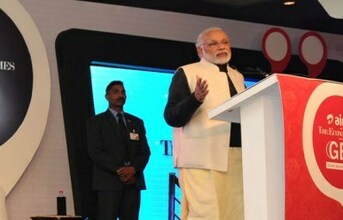
Many of you are aware of the contribution India can make to the global economy at a time of economic stagnation in many parts. For the last four quarters, India has been the fastest growing large economy in the world.
In 2014-15, India contributed 7.4% of global GDP in purchasing power terms. But it contributed 12.5% of global growth. Thus its contribution to growth is 68% higher than its share of the global economy. FDI in India has increased by 39% in the last 18 months, at a time when global FDI has fallen.
But a country's contribution goes beyond economics. Protecting our planet from climate change is one of the most important tasks for this generation. If one country reduces its environmental footprint, it creates benefits for all others. It is for this reason that in the COP 21 Summit, India made far reaching commitments towards the larger welfare of the planet.
In history, every country that has grown has increased its per capita emissions footprint. We are committed to re-writing that history. We are committed to reducing the emission intensity of our GDP by 33% by 2030 even while growing at a fast pace. For a country which is already at a very low base of per capita emission, this is a very ambitious target. We have committed that by 2030, 40% of our electric power capacity will be from non-fossil fuel.
We have also committed to building an additional carbon sink of over 2.5 billion tonnes of carbon dioxide equivalent. This will be done by creating additional forest cover by 2030. This commitment is from a country with a very low per capita land availability.
We have taken the lead in launching an international solar alliance, involving 121 countries falling between the Tropic of Cancer and the Tropic of Capricorn. This initiative will help many developing countries, from Africa to South America, to take advantage of developments in renewable energy around the world.
(Continued on the next page)


























